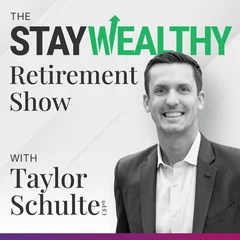You spoke, we listened! We now offer a Comprehensive One-Time Retirement Plan.
Just like a neurologist wouldn’t perform foot surgery, we remain highly specialized in retirement and tax planning for people age 50+ who have accumulated investments of $1 million or more.
That’s where we do our very best work!
If you’re on the hunt for an expert who is dedicated to helping you lower your tax bill in retirement, click here to learn more about The Define Retirement® PLAN process.
Today I have a special episode for you.
I’m sharing a sneak peek into an incredible new project launched by Tyrone Ross. (You don’t want to miss this.)
I’m also joined by Caleb Silver, Editor in Chief for Investopedia.com.
We talk about three big things:
Key Takeaways
- How he thinks about the media’s role in financial content and education
- The biggest investing mistakes readers made in the last 12 months
- What you need to know about fractional shares, limit orders, and SPACs (in plain English!)
If you want to learn how to be a better investor from the person leading the charge at one of the largest financial information websites, you’ll love this episode.
How to Listen to Today’s Episode
Episode Links & Resources:
- 👉 Get Your One-Time Retirement Plan
- The Learn to Money Project [Tyrone Ross]
- Investopedia:




